| This article was constructed with the help of either writings, lectures or shiurim of Rabbi’s Yissachar frand, Rachamim Shaulov, Rabbi Dovid Hoffman, Yossi Bilius, Asher Hurzberg and Boaz Davidoff |
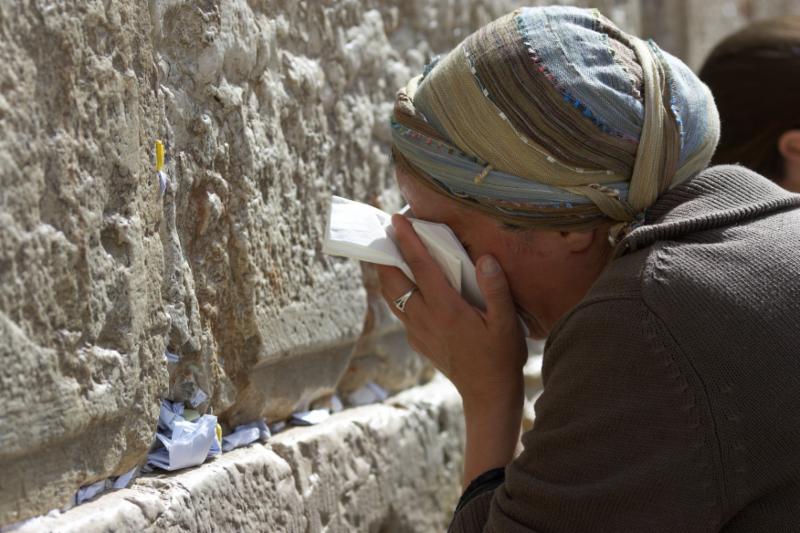  The first nine days of the Hebrew month of Av, culminating with the fast of Tisha b’Av, observed on the date when both Holy Temples were destroyed, are the blackest days on the Jewish calendar. These are days of national mourning, when we contemplate the nearly 2,000-yearlong galut, the physical and spiritual displacement of our nation.
Though festivities are inappropriate for these days, there is one avenue of joy that is permitted -joy associated with serving G-d, the joy of a mitzvah. In fact, the celebration of certain mitzvot overrides the sorrowful nature of the time, and calls for a seudat mitzvah-a celebratory mitzvah meal- during which the mourning practices of these days are relaxed.
One such joyous occasion is the participation in a siyum- the completion of a tractate of the Talmud-which is both a mitzvah as well as an academic feat worthy of celebration. What makes a celebration complete, of course, is the appearance of special foods. Therefore, at these siyum gatherings of at least ten men, the nine days prohibitions of eating meat and drinking wine are lifted.
I shouldn’t have to tell you what happens when wine and meat are easy access at a party. A friend of mine boasted that he attended a siyum masechet almost every night of the nine days, something which came across as a bit odd. I suspected, that between his being a big party goer and his neighborhood’s known excess at kiddushes, weddings, and bar mitzvot, these siyumim were scheduled out of sheer effort to party. A sham you might say; an excuse to eat pastrami and garlic hotdogs or steaks. As if to declare, “hey we can do eat meat during the nine days within the confines of Halacha-HA- HA! We after all, have a rebellious nature, don’t we? We were able beat the system!! We were able to eat what we wanted and not violate any laws. We’re smart and clever Jews.”
There is, however, a deeply rooted reason for having such festive occasions during the nine days and it makes perfectly logical sense.
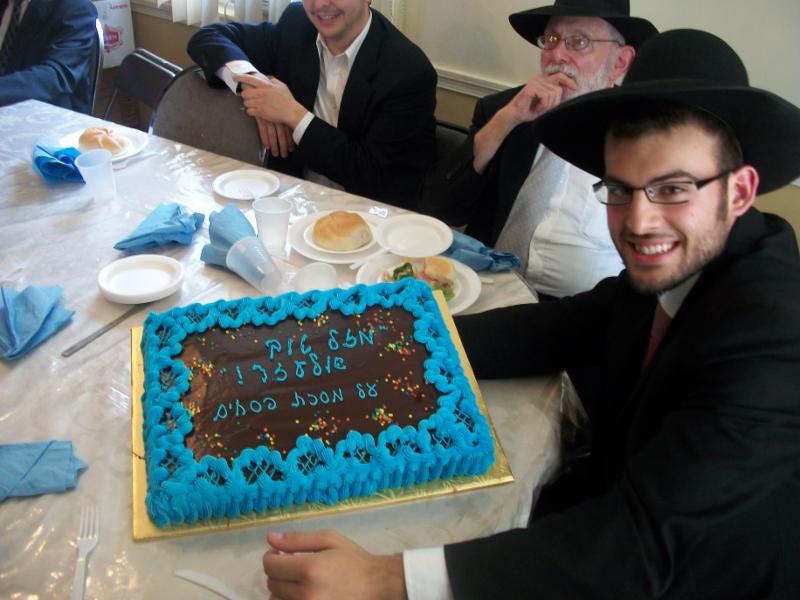 Eliezer finished a masechet and a special cake was made for the occasion, he’s celebrating with a cake and a great meal with his buddies
 There is a Gemara in tractate Shabbat that mentions Abaya – one of the prominent figures of the Talmud- would pay for the celebration of his friend’s completion of a tractate and invite the entire rabbinical body, making a public display of an otherwise private event.
There is actually a Chassidic tradition to participate in siyumim during each of these nine days!! The question is why? Why do some celebrate deliberately? Isn’t doing so slighting the mourning period? Isn’t it insulting the ones who perished on during this time? Isn’t that putting salt on the wound experienced by our ancestors? One must realize the ramifications of this dark period. Tisha B’Av is brutal! Don’t people realize it’s Tisha B’Av!
Our Talmudic Sages teach that the Second Temple was destroyed due to sinat chinam – baseless hatred between fellow Jews. Typically, this is taken to mean that the Jews of that time, seemingly much like Jews of every time, were not fond of each other. There’s nothing fancy about it. They simply hated each other and perpetuated an anti-collective environment and as a result, the Temple was destroyed. We did not deserve a Temple if we couldn’t even get along. In a practical sense, how could we expect to work together in the Temple if we hated each other? Even in a halachic sense, how could a priest achieve atonement for another person if he didn’t even care if that other person was forgiven? Caring for one another is a prerequisite to service in the Temple. To be sure, this is a valuable and important lesson: “A house divided against itself cannot stand.”
WHAT IS THE REMEDY?
I heard a fascinating story from Rabbi Rachamim Shaulov quoting Rabbi Yissachar Frand, which I think properly directs the barometer towards where we should be in our relations to our brethren. This story happened recently, only a few summers ago. There was a Chasidic couple who, initially, were not able to have children. However, after a time, the Master of the Universe, in His eternal kindness, blessed the couple with twins.
During the grueling New York summer, many Chassidim escape to the country, though husbands return to the city on Sunday nights for the workweek. (Hey, money has to come from somewhere!) While the wives and children run around between the grass and the trees all summer, the husbands only taste the country heaven on Shabbat. This couple was one of many to engage in this practice.
 Sometime during the early part of one such week, the mother and her eighteen month old twins attended a rather large and crowded cafeteria in the country Bais Yaacov (girls school), upstate. Washing for hamotzie at the side of the room, she wasn’t able to carry both twins and left one briefly unattended at the table. Unfortunately and to her horror, when she returned the baby was gone. Her eyes stretched wide open looking, first in her vicinity and then searching up and down the rows of the cafeteria, but the child was nowhere to be found. She let out a panicked scream, asking if anyone had seen her baby. The people nearest her, began looking around, but after a few minutes, returned to their lives. In a desperate attempt, the mother picked up the other twin and screamed “has anybody seen a child that looks like this one!!”. After a brief silence, the noise volume in the room went back to where it was before the announcement. The mother left the cafeteria in a state of hysteria, screaming and crying as she walked through the parking lot holding the one baby. A girl approached her and asked with concern, what had happened. The mother explained, whereupon the girl assured her that they would find the missing baby. She then called a number of her classmates and assigned them each an area to search for the missing child. One was assigned one to the gym, one to the administrative offices, one to the classrooms, and one to the bathrooms. Unfortunately, after half an hour of searching to no avail, the girls came back empty handed.
 The girl who organized the search told the mother that she would return to the school and search herself, at which point she disappeared for some time. The mothers eyes was fixated on the entrance of the school, where the girl had entered to find her child. Low and behold, twenty minutes later, the mother saw the organizer come out of the building and in her hands, safe and sound, was the missing child!!
The mother, crying tears of joy, hugged her child and thanked the organizer profusely. The girl said that she found the baby in one of the classrooms. “Wait a minute,” the girl that was assigned to search the classrooms wondered out loud. “I was in that classroom and I did not see the child?” The organizer replied, “I looked under each and every desk”. Astonished at her dedication, the mother asked why she was so particularly driven and concerned.
The organizer responded with moist eyes, “Because I’m Leiby Kletzky sister. I know what it’s like to lose a loved one.”
(On July 11, 2011, Leiby Kletzky, a Hasidic Jewish boy, was kidnapped as he walked home from his school’s day camp in the mainly Hasidic neighborhood of Boro Park, Brooklyn in New York City. Kletzky’s disappearance sparked an all-out search by New York City police and a block-byblock search by as many as 5,000 Orthodox Jewish volunteers. Leiby Kltzky was found to have been abducted and murdered.)
Does our predicament have to be such, before we can act in that manner? Do we Chas V’shalom, need to endear pain similar to Leiby kletzky’s sister, in order to experience real concern for others?!. Might one say that Kletzky’s sister performed above the norm and that is too high a standard for the rest of us? Absolutely not!! A baby might have died if not for Leiby’s sister’s dedication! The proper response is to raise our level of caring for our fellows. Jews have always set the standard for behaving like menches. Our actions should always be well thought through and we should always strive for the highest levels of compassion and kindness.
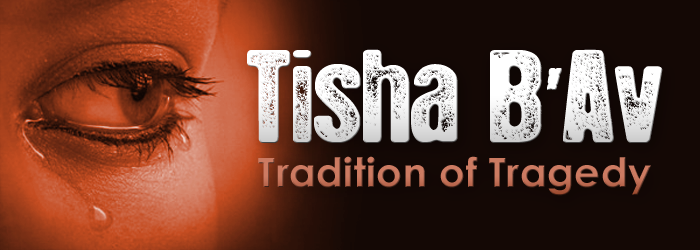 I came across a story that really defines the type of excellence we should have in our caring for our fellow Jews. I found this story to be quite moving and that it gave me something to strive for in my associations with my brethren.
Wars are brutal and World Wars are all the more devastating. When World War I broke out, many Jews were drafted to fight on the battle fields for the countries in which they resided and as one could imagine, there were many Jewish fatalities. When the great Tchortcover Rav, Rabbi Yisrael Friedman, arrived in Vienna after being displaced from his home, he immediately began working to ease the plight of Jews who had left everything behind, to save themselves and their families. He was also very involved in persuading Jews who had lost the way of Jewish tradition and Torah values to return to the fold. He insisted that he was available to assist anyone and everyone. He’d say, “this is what I learned from my holy fathers, who took care of and worried about those who had fallen by the wayside.” One of his concerns, was saving Jewish boys from bing drafted into the army. Besides for the dangers that always come with battle, they were persecuted by their non-Jewish, fellow soldiers. It was a no win situation.
His efforts soon caught the attention of the authorities, who were not pleased. In order to confirm their suspicions, they dressed up one of their officers as a Jew and sent him as a spy, to the Rebbe. The official portrayed an anguished Jew, crying and telling the Rebbe that he had only one son who had been called to perform his army service. He begged the Rebbe to have pity on him and help his son evade the army.
R’ Yisroel listened to the man’s story and, when he had finished, asked the man to repeat the story. The man again told over the whole affair, crying bitter tears for his son. When he had finished, the Tchortkover Rebbe asked him to tell over the whole story, yet again. When the man finished for the third time, the Rebbe said sternly, “Don’t you know that you have to obey the laws of the country? It is forbidden to evade army service! We live here and we have to be proper citizens of our host country”. The man left without another word.
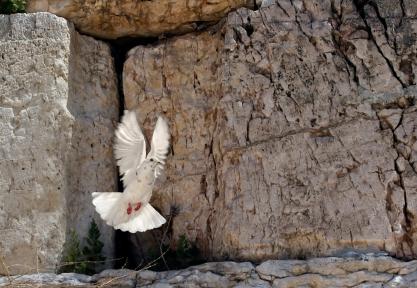 A few days later, a high-ranking officer came to thank the Rebbe for encouraging people to do their army service. They had heard rumors that he was helping people avoid the army, but they were pleased to note that these were not true. The Chasidim were convinced that it was only through a miracle – ruach hakodesh, perhaps – that the Rebbe had known that the crying man was a disguised officer. The Tchortkover sought to dispel this “miracle” and explained how he had suspected the truth.
“Normally, when a Jew tells me his personal sorrows,” the Rebbe said, “I am able to feel a portion of his pain and suffering deep inside me. Yet, when this man told me his story, his tears did not affect me at all. At first I thought it was my fault, that perhaps I was not capable of feeling this man’s suffering. I decided, therefore, to ask him to tell me about his problem again. Perhaps I would then feel part of his pain. I still, however, did not feel touched by his story and I also felt that this man himself was not properly upset by his own problem. I asked him to repeat it a third time and then I noticed that it was indeed as I had suspected. The man was not really upset and that was the reason that I had not been able to feel his pain. I therefore knew that his story was not true and that he was lying.”
When one acts with chessed- kindness- his sensitivities toward others become immeasurable, to the extent that he can actually feel not just another’s pain, but his joy as well. The concept of one nation with one soul has never been portrayed more profoundly, than in this story. We of the Jewish nation, are one unit and we are connected to each other, like parts of a single body.
Returning to my party going friend and his boasts of attending so many siyumim and consuming so much meat and wine, that he made our ancestors in the desert look like amateurs. Could the food and wine seriously have been that good? I honestly don’t think so. We are living, thank Gd, in a country where food is “easy access”. Ask any immigrant and they’ll tell you that there is no comparing their country of origin to America. We are blessed in this country, bli ein hara. It is true that my friend likes to eat, we have that in common, and perhaps that is why he’s my friend, but I think there is a deeper reason for his attending so many siyum masechet parties. He, like me, enjoys the companionship. I inherited that trait from my father. I always picture my father z’l, when he was in his forties with a shot glass of konyak, raising it to his friends at our Shabbat table and saying Lechaim. It brought camaraderie, it brought unity, it built relationships and it forced people to get closer and care about each other. A siyum is the anthisisis of the anti-social environment about which, we mourn.
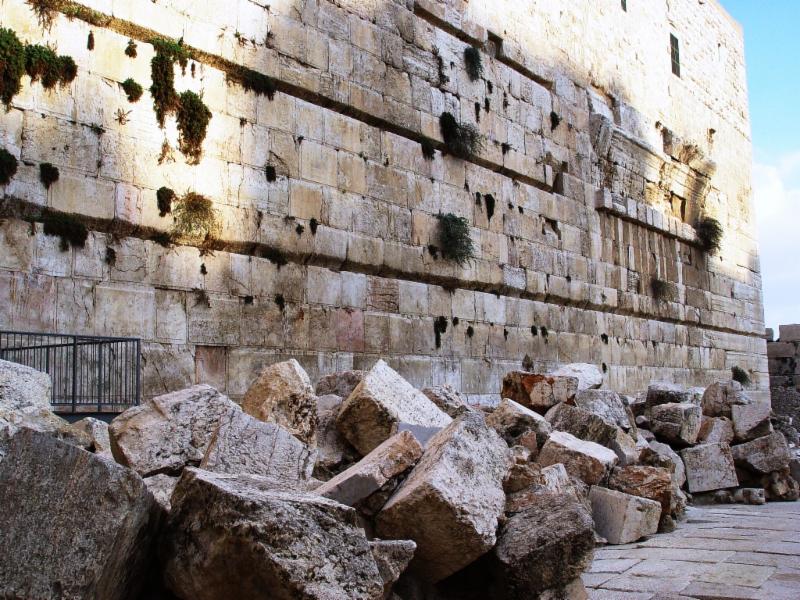 No matter how much we may dislike each other, we must be aware of the consequences, for Gd hates disunity with a passion. We look at our history and see the destruction of the Temple as a result of this problem. Even the corrupt and idolatrous generation of King Achav, was spared, because they were unified.
If someone doesn’t suit our fancy, instead of pushing him aside we should try to reach out to him. Perhaps we can go the extra mile for him to make him better. Perhaps we can go the extra mile in all forms of chessed and caring. Perhaps, if we do this, there will be no more mourning on Tisha B’ Av. Perhaps we can build a better world and be a part of the ultimate festive meal, with plenty of meat and wine, when the Mashiach arrives!
|

 Fasting is not the easiest and the most popular aspect of Judaism, however, one is required unequivocally to do so. It’s part of the package deal. There are six fasts in our Jewish calendar year. The way to remember them is by this little rhyme: boy, girl, long, short, black and white. Boy is Tzom Gedalia; Girl is Ta’anit Esther; long is 17 of Tamuz (for it’s the longest); short is 10 of Tevet; White is Yom Kippur and black is the 9th of Av.
Fasting is not the easiest and the most popular aspect of Judaism, however, one is required unequivocally to do so. It’s part of the package deal. There are six fasts in our Jewish calendar year. The way to remember them is by this little rhyme: boy, girl, long, short, black and white. Boy is Tzom Gedalia; Girl is Ta’anit Esther; long is 17 of Tamuz (for it’s the longest); short is 10 of Tevet; White is Yom Kippur and black is the 9th of Av.
 My friend invited me to one of those; however, it seemed a little odd. I suspected since he being a big party goer and his neighborhood always is a little excessive of serving the best of everything at kiddushes, weddings, bar mitzvot, this invite was sort of forced out of sheer effort to party. A sham you might say; an excuse to eat pastrami and garlic hotdogs. Perhaps to say, hey we can do it in the confines of Halacha-HA- HA. However, there is a deeply rooted, mind boggling, reason for having this festive occasion during the nine days and it makes perfect logical sense!!!
My friend invited me to one of those; however, it seemed a little odd. I suspected since he being a big party goer and his neighborhood always is a little excessive of serving the best of everything at kiddushes, weddings, bar mitzvot, this invite was sort of forced out of sheer effort to party. A sham you might say; an excuse to eat pastrami and garlic hotdogs. Perhaps to say, hey we can do it in the confines of Halacha-HA- HA. However, there is a deeply rooted, mind boggling, reason for having this festive occasion during the nine days and it makes perfect logical sense!!!


 In all these descriptions, the Torah emphasizes over and over again that Moshe demonstrated the character trait that Pharoah thought he would never have – the attribute of empathy for the suffering of others. Logically, Pharaoh was right, but he underestimated Moshe’s strength of character that despite the fact that he was not part of the enslavement, he did feel the pain as acutely as anyone who experienced it personally.
In all these descriptions, the Torah emphasizes over and over again that Moshe demonstrated the character trait that Pharoah thought he would never have – the attribute of empathy for the suffering of others. Logically, Pharaoh was right, but he underestimated Moshe’s strength of character that despite the fact that he was not part of the enslavement, he did feel the pain as acutely as anyone who experienced it personally.
 When I was in grade school, a close friend of mine turned against me, Just like that, overnight, he turned from being my best friend to my public enemy, a real bully, and he was relentless, turning many from the class against me. Over the years, I always held my head up high and proclaimed that I handled the situation well; I was poised, had a backbone and held my composure through many of his shenanigans. The rest of the class was impressed. Another antagonist in high school was problematic as well, but I learned well from that first experience.
When I was in grade school, a close friend of mine turned against me, Just like that, overnight, he turned from being my best friend to my public enemy, a real bully, and he was relentless, turning many from the class against me. Over the years, I always held my head up high and proclaimed that I handled the situation well; I was poised, had a backbone and held my composure through many of his shenanigans. The rest of the class was impressed. Another antagonist in high school was problematic as well, but I learned well from that first experience. A few years ago I received a phone call inviting me to a siyum (completion of Torah learning) during the nine days. They were going to order deli from a Romanian restaurant in Chicago. One might say it’s a bit extreme to order from out of state, even though their taste in food is excellent. The problem was it’s during the nine days when meat cannot be eaten. I thought, why couldn’t they push it off till after Tisha Beh Av.
A few years ago I received a phone call inviting me to a siyum (completion of Torah learning) during the nine days. They were going to order deli from a Romanian restaurant in Chicago. One might say it’s a bit extreme to order from out of state, even though their taste in food is excellent. The problem was it’s during the nine days when meat cannot be eaten. I thought, why couldn’t they push it off till after Tisha Beh Av. Now we can understand why G-d has not let us built the 3rd Temple. Temple is a symbol of peace. He has not forgiven us because perhaps, subconsciously, we have not forgiven each other. We don’t realize but words penetrate the heart.
Now we can understand why G-d has not let us built the 3rd Temple. Temple is a symbol of peace. He has not forgiven us because perhaps, subconsciously, we have not forgiven each other. We don’t realize but words penetrate the heart.


